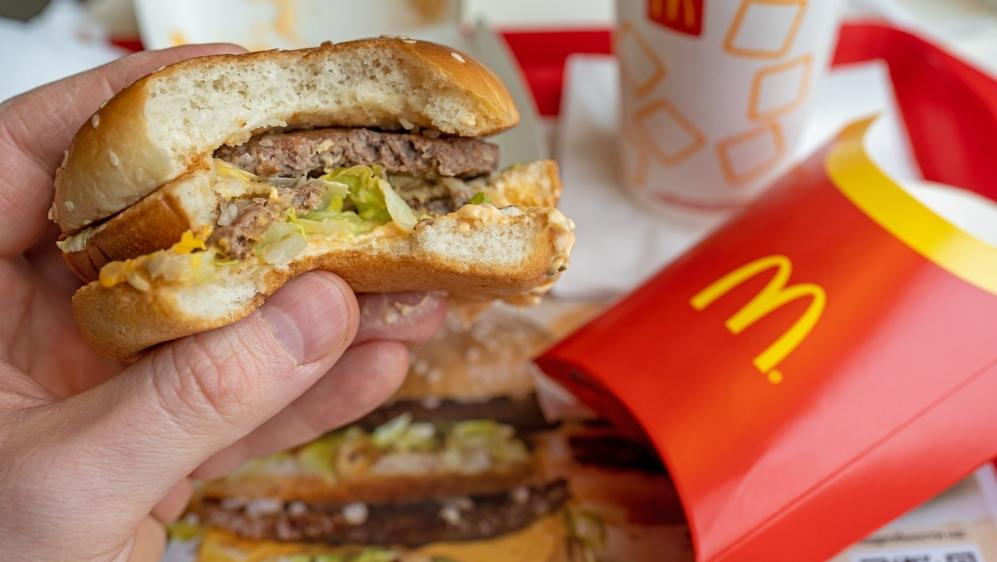A Class Action Suit Against McDonald's And Wendy's Has Failed
The two fast food chains have dodged a major legal battle.
Unlike many other fast food class action lawsuits currently moving forward in the legal process, a recent filing against both Wendy's and McDonald's has been axed by a New York judge, Restaurant Business reports.
The original filing from May 2022 alleged that McDonald's and Wendy's both materially overstated the size of their beef patties in their advertisements. Wendy's, the plaintiff alleged, overstates the toppings and thickness of the beef patties used for the Bourbon Bacon Cheeseburger. The filing claims this is done by undercooking the patties for advertising purposes so that they appear "approximately 15-20% larger than the beef patties that are actually served to customers."
The lawsuit cited examples of Wendy's advertisements and quoted a food stylist for Wendy's who has noted using this method for the brand's advertising. Based on this information, the lawsuit went on to include the following offenders: the Big Bacon Cheddar Cheeseburger, the Big Bacon Cheddar Cheeseburger Double, the Big Bacon Cheddar Cheeseburger Triple, the Bourbon Bacon Cheeseburger, the Bourbon Bacon Cheeseburger Double, the Bourbon Bacon Cheeseburger Triple, Dave's Single, Dave's Double, Dave's Triple, the Baconator, the Son of Baconator, the Big Bacon Classic, the Big Bacon Classic Double, the Big Bacon Classic Triple, the Bacon Double Stack, the Jr. Bacon Cheeseburger, the Jr. Cheeseburger Deluxe, the Jr. Cheeseburger, and the Double Stack.
The allegations against McDonald's were similar, calling the brand out for using the same methods as Wendy's in its advertisements to mislead consumers. The menu offerings cited in the filing include the Big Mac, the Quarter Pounder, the McDouble, the Cheeseburger, the Double Cheeseburger, and the Hamburger.
Although the advertisements included as exhibits did seem to depict a much larger burger than what is actually served in restaurants, there was one crucial issue with the plaintiff's argument, according to U.S. District Court Judge Hector Gonzalez. In this case, the plaintiff did not argue that the chains misled customers by using more meat in advertisements than what was actually served. Instead the claims focused on the methods used to dress up the sandwiches for marketing purposes.
A similar case was brought against Burger King's Whopper in August and was allowed by a judge to move forward. The lawsuit alleges that Burger King makes its signature burger appear bigger in advertisements, misleading customers in what constitutes a breach of contract.
The plaintiff in this Wendy's/McDonald's suit, Justin Chimienti, submitted a letter to the New York court noting the Burger King case set a precedent. However, Judge Gonzalez was not swayed, explaining that Wendy's and McDonald's methods of advertising were no different than any other fast food chains and would only be misleading if they made representations of actual size. The judge also noted that the advertisements were not enough to "constitute offers to enter into a contract."
So, while seeing an image of a thick, stacked, juicy burger might entice you to purchase one that is unimpressive by comparison might be disappointing, in New York it is not a legal offense, at least for now.
